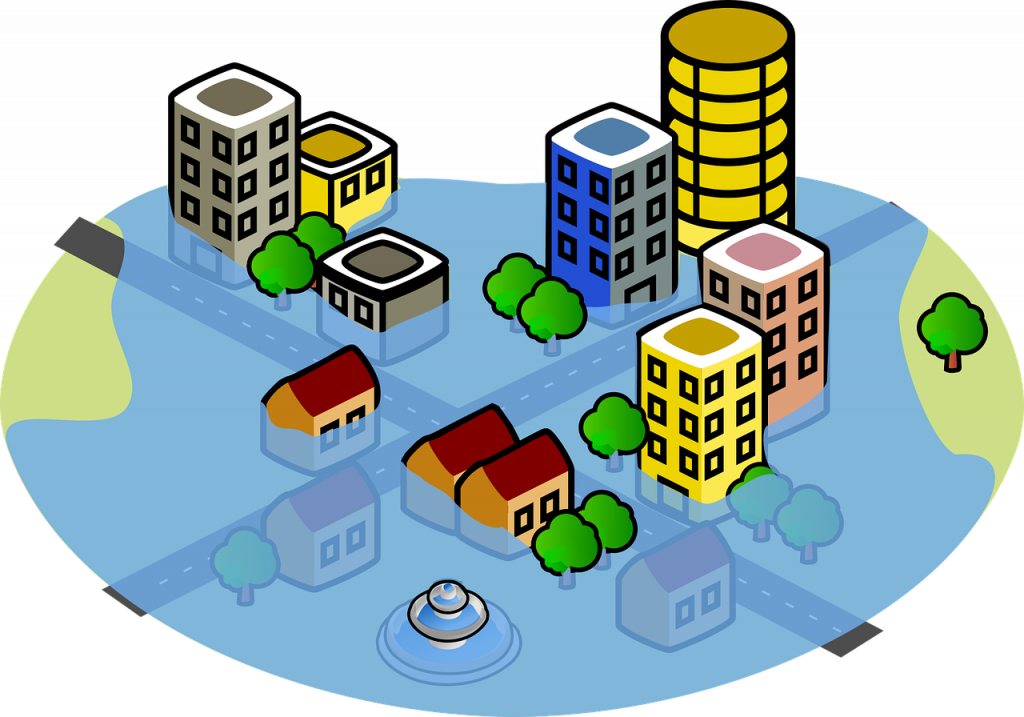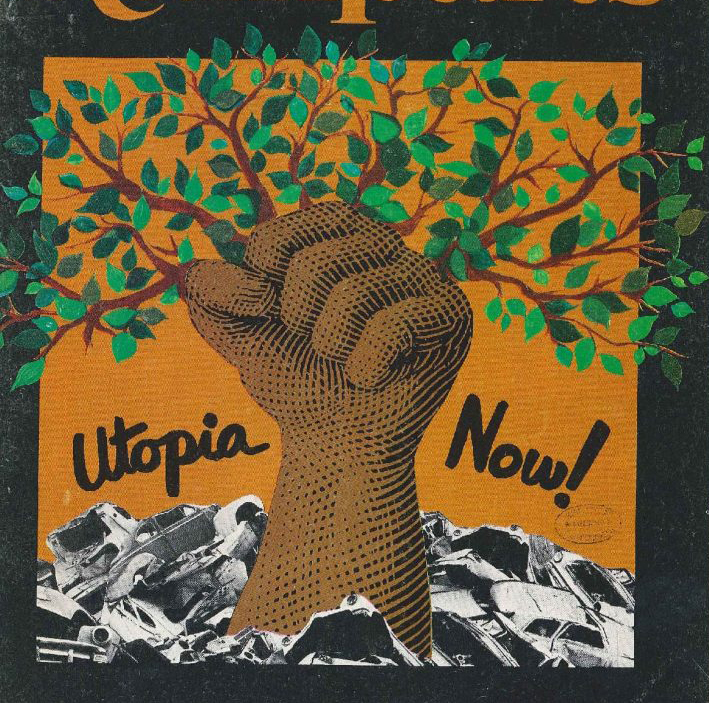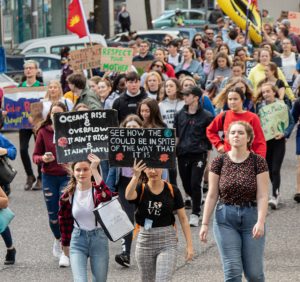ITA | ENG

The ecological crisis is increasingly relevant in public debate and party agendas.
Extreme climate events are on the rise, biodiversity loss is more and more critical, polluting emissions continuously alter the biospheres: the urgence of the problem call of concrete actions. The ecological transition is surely a possible solution, since it is intended to lead the transition of the European Community to the world’s first carbon neutral economy.
Against this background, Fondazione Giangiacomo Feltrinelli, in partnership with Eni, has carried out a research project aimed at investigating the social, political, and cultural impacts of the ecological transition. The three areas of impact are the following: democratic participation, work and skills, and welfare and social protection. For each of these themes, a workshop was held, presented by a journalistic survey, apt to investigate practices and actions already in the field, i.e., concrete examples of ecological transition with a positive socio-cultural impact.
The three areas of impact are as follows:
- Democratic participation;
- Work and skills;
- Welfare and social protection.
For each of these themes, a workshop has been organized, presented through investigative journalism, aimed at exploring practices and actions already in place, which are concrete examples of ecological transition with a positive socio-cultural impact.

#1 Ecological transition at work
Two main issues are at stake about the relation between competences and ecological transition: education and labor market policies, considered both as post-education life-long formation and as services for re/up-skilling of unemployed people.
This journalistic investigation is aimed to shed a light on the way in which different industrial sectors are dealing with the green transition. The focus is on the energy sector for what concerns renewables, but also on the chemical and automotive sectors, considering on the one hand the opportunities related to the circular economy, and on the other, the difficult adaptation that is expected to happen in relation to the transition from endothermic to electric engines. In the context of our series of workshops it has the scope of considering how the economic stakeholders are actually moving, and to produce a first grounding of the themes of interest.
The ecological transition, to which should follow the decarbonization, is a process that is expected to impact to the core sectors of industrial economies, such the energy-intensive or hard-to-abate sectors (steel, cement, petrochemical, energy production, mobility).
Several points emerged from the discussion. First, what is needed for a Just Transition is clearly not a technocratic management of an economic transition within capital accumulation systems. Instead, due to the unseen gravity of the socio-ecological crisis, the scope of the transition should be enlarged and made broader. Accordingly, the necessity is to steer and push for a behavioural change, and in particular in the affluent Western societies, which are, and historically had been, the major contributors to environmental damages, climate change, and, ultimately, to biosphere alteration.

Discussion Questions:
-
Which are the key competences for the ecological transition?
-
How to structure those new competences?
-
What role can trade unions and companies play in fostering a socially just transition?
-
How should industrial relations and corporatisms be thought over in the context of a green transition?
-
Which could be the perspective for the educative system?
#2 Democratic participation

The second workshop – Democratic participation and ecological transition, towards a new political citizenry – was intended to inspect the relationship between democratic participation, deliberative practices, and green transition. This initiative is the first of a series of three, aimed at investigating the potential effects of the green transition in three socio-political spheres, respectively, democratic participation; labour market, work, competences and formation; welfare state and social protection.
Governance is a priority in the green transition. The “European Green Deal” and the “Fit for 55” package have defined ambitious targets in terms of climate policy, but their achievement requires a broad mobilization and strain by all the interested parties: from citizens to political institutions, from administrations to civil society. European societies have developed important instruments of multilevel governance over the years, which facilitate the involvement in the decision-making of several actors. Now the green transition requires a step change: this epochal challenge interests in fact the whole society. From industrial decarbonization to energy communities, from mobility to green housing, the scope of the green transition would interact with a plurality of contexts.
To ensure a just ecological transition, it is necessary to design decision-making mechanisms in an inclusive and participatory manner. The objective is twofold: on one hand, to strengthen democratic citizenship, and on the other, to open policymaking towards more horizontal practices. This requires a new model of democratic participation, more open, more inclusive, and more aware of social marginality. The green transition should engage the “center”, meant as the cities, considered as the poles of innovation and development, but also the “periphery”, to ensure inclusiveness and effectiveness of the process, in terms of opportunities and living conditions: in other words, to guarantee that the ecological transition really constitutes a just transition.
Discussion Questions:
-
Are direct democracy and participatory practices a successful way to address the legitimacy crisis of contemporary liberal democracies?
-
How do lack of trust in politics affect political participation?
-
Can citizens’ involvement represent a response to political conflicts?
-
Which mechanism should be put in place to strengthen the legislative implementation of the outputs of participative practices?
-
How to guarantee a broad involvement of the whole citizenship?
#3 The Political Economy
 The last workshop presents a discussion on eco-social policies and sustainable welfare systems in Europe. The green transition proposed by the European Union and formalized in the European Green Deal will have a disruptive impact on labor markets and employment. Welfare systems will be put under pressure, particularly pension regimes, assistance programs, and social services. The green transition will have unequal impacts on citizens, in which the educated urban population will derive more benefits, as opposed to industrial workers employed in primary and secondary industries, and in general, high energy-intensive activities. How can the 20th-century social protection adapt to the 21st-century labor markets? What are the relationships between social and ecological spheres? What are the economic objectives of sustainable growth and green growth? What actors, alliances, and conflicts can emerge in a new eco-socialist welfare policy?
The last workshop presents a discussion on eco-social policies and sustainable welfare systems in Europe. The green transition proposed by the European Union and formalized in the European Green Deal will have a disruptive impact on labor markets and employment. Welfare systems will be put under pressure, particularly pension regimes, assistance programs, and social services. The green transition will have unequal impacts on citizens, in which the educated urban population will derive more benefits, as opposed to industrial workers employed in primary and secondary industries, and in general, high energy-intensive activities. How can the 20th-century social protection adapt to the 21st-century labor markets? What are the relationships between social and ecological spheres? What are the economic objectives of sustainable growth and green growth? What actors, alliances, and conflicts can emerge in a new eco-socialist welfare policy?
“The welfare state could be expected to play 4 functions in the green transition: i) as a benchmark, providing principles and rights that should be reflected in designing and implementing of the policies for the green transition; ii) as an enabler of the green transition; iii) as a buffer, to mitigate and diffuse the negative social effect of the green transition; iv) as a consensus-builder or conflict-management tool of the green transition, through social and civic dialogue.” – Sebastiano Sabato
The discussion questions focus on the impact of the green transition on European welfare systems, the most vulnerable social groups, the development of eco-social welfare systems, the relationships between social and ecological spheres, and the adaptation of economic growth to eco-social welfare systems.
 Discussion Questions:
Discussion Questions:
-
How will the green transition impact European welfare systems?
-
What are the most vulnerable social groups?
-
How can eco-social welfare systems develop into sustainable welfare systems?
-
What are the relationships between social and ecological spheres? How to build a bridge between the goals of social and environmental policies?
-
How can economic growth be reformulated in relation to eco-social welfare systems?
In collaboration with






